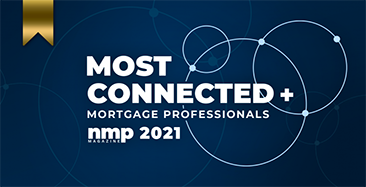Can your credit score prevent future employment?
We all know that your credit score can impact several aspects of your life, from obtaining a mortgage to getting approved for a car loan. Your credit score can help you obtain a low, or high, rate depending on the score. However, not only your credit score can affect your interest and qualifications for a loan, but it could also change your job as well!
Some may ask, “Wait… is that even legal?” The short answer is yes. Your future employer can’t take a look at your actual credit score, but they can use the information that can influence their hiring decision. They will ask for you to give permission to access your credit report. What they look for is if you have been turned down for anything because of your credit history.
So what does my credit report say about me that my employer would like to know? According to the Federal Trade Commission, the most common background checks employers will obtain are criminal background and credit report checks. Your credit report verifies your name, current and past addresses, Social Security number, birthdate, and previous employers to confirm that you are whom you say you are.
The next part of the report they look for are your loans, credit cards, balances, and payments. They look at your credit history for one apparent reason: how well you have managed your finances. Why? Well if you are going to be in charge of managing someone else’s money in the future, they want to know you could at least maintain your finances. Not only that, but they also look to see that if you are financially responsible, you are probably are responsible for other aspects of your life, including work.
Another part of your credit history they look for is your public records. Did you declare bankruptcy at one point or were there any civil judgments against you (like a civil lawsuit or child support case)? Looking at this gives a good insight into issues that are larger than missing a payment or two. With this information, employers seem to see if you can adequately handle your finances on your own. Also, they also see it as a possible red flag that you do not put work first, and you are distracted by your personal issues.
So, why are employers running a credit check on me? According to a study from the Society for Human Resources Management (SHRM), the top two reasons why they check are to reduce or prevent theft and reduce legal liability for negligent hiring. If your credit is less than perfect, it’s okay! Responsible people have missed a payment or two, and some responsible people have declared bankruptcies. However, just like criminal background checks, they look to weed out the people who made several bad choices like purchasing big-ticket items when they already are carrying substantial debt. With this information, they want to sure they will not hire anyone who is most likely to be in a situation where they might be tempted to steal money from the company or compromise privet client information.
The one question on your mind is: Will my credit history impact my chances of getting hired? Well, it depends on which position or career field you are entering. If you are applying to be a line cook or a copywriter, your credit score might not be related to your job. However, if you are applying to a position where you will be handling client’s personal information or if you are managing the company or client’s money, your credit score will be more relevant.
Actually, in some cases, your credit score can make you disqualified for a position. For example, if an individual wants to become a mortgage loan officer, they must meet specific credit requirements before they get licensed. If that applicant has serious red flags on their credit report, most likely they will disqualify them from obtaining their license, and the employer will most likely pass up the applicant compare to someone who has a better chance of getting licensed.
Before the human resources team makes any conclusions, they will investigate each situation and look at the factors that obtain to the individual before making any conclusions. If the applicant missed any bill payments, where they missed at the same time, or was it an occurring situation over the years? If they applicant have anything in collections, was it because they were living outside their means or was there a situation (like a divorce) that hurt their ability to pay their loan?
According to the same SHRM study, they found that out of all the organizations that conduct a background check, 80% of the applicants they have hired had at least one piece of negative information on their credit report. In most cases, a mistake or two shouldn’t hurt your chances of getting a job.
So now that you know that employers will run your credit report, what can you do to prepare? First, the most obvious option is for you to get a copy of your credit report so that you know what is on your report in the first place. Not only that, but nearly one out of five consumers have found errors on their credit report. If you found any errors on your report, make sure you correct them before your employer has a chance to see them. Second, if you do have any potential red flags on your report, you can add a 100-word statement disputing or defending the issue. Employers want to know your situation more than you didn’t just pay your bills. Did you lose your job? Did you get a divorce or had any outstanding medical bills? If so, tell them, so employers don’t come to their own conclusions..





















